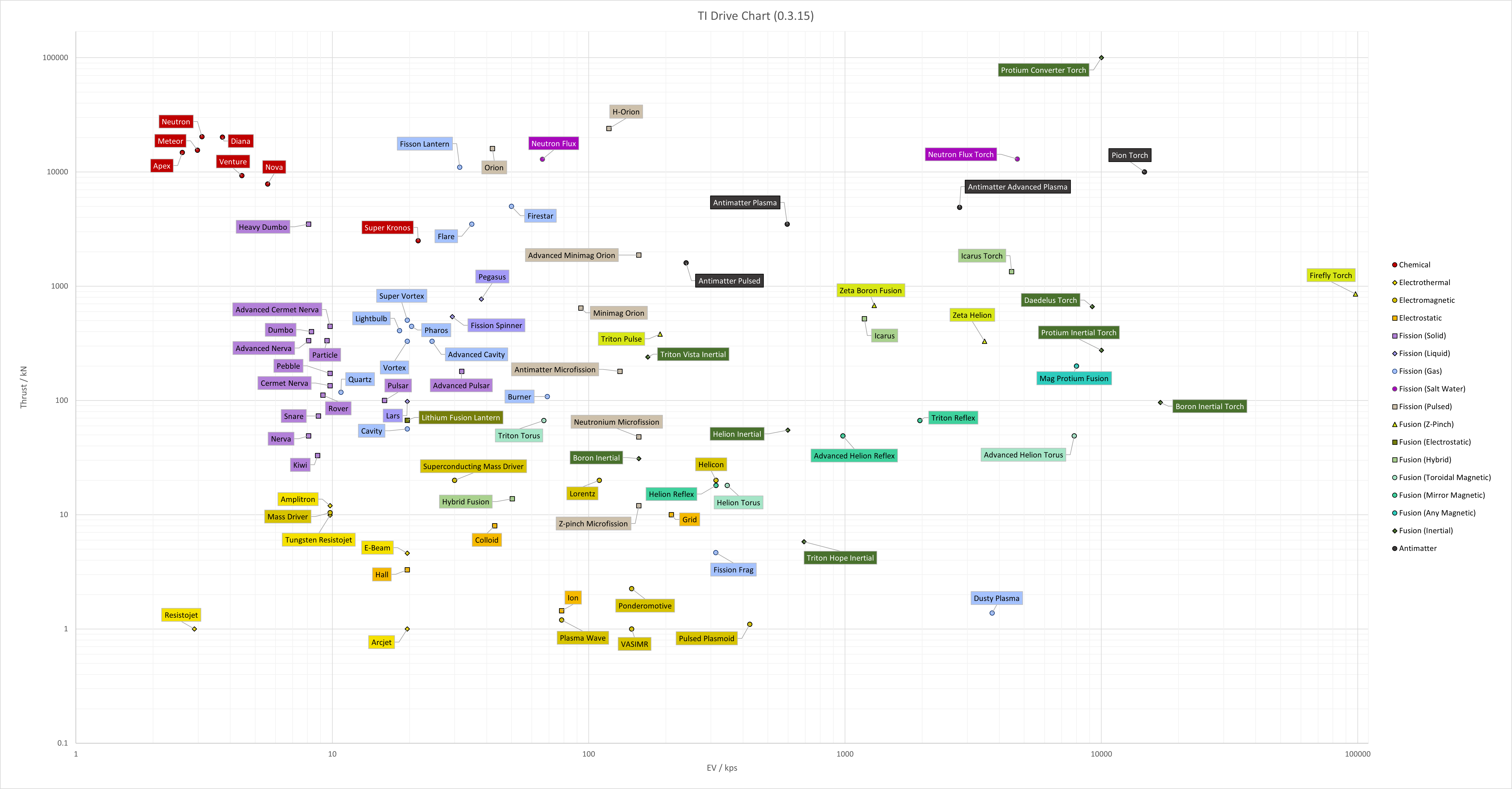Welcome to our Terra Invicta Drive Chart guide. Chart showing Exhaust Velocity and Thrust of all Human faction drives in the game. Mild spoilers. We know that there are people who have a hard time finishing the Terra Invicta game. If you are one of those who find it difficult to finish the game, let’s take you to our Terra Invicta guide.
Updated on 12.02.2022
Terra Invicta Drive Chart
Chart showing Exhaust Velocity and Thrust of all Human faction drives in the game!
Drive Chart
For those who want a more in-depth look at ship design, I’ll give a quick analysis of the metrics connected with drives and why they matter. In general, drives fall into one of three categories: transitional drives, evergreen drives, or drives that are completely useless. I chose to place them in that order because evergreen drives are the hardest to avoid converging on, while transitional drives are the easiest to grasp. You will nearly always know when you arrive at these.
Take note that the axis are logarithmic, so each step is an increase by 10x.

Drives Stats
- Required Power Plant: Limitations on the kinds of power plants that can be used with the drive are included for completeness. Generally speaking, it doesn’t matter because it’s likely the ideal plant for the time you want to utilize that certain drive anyhow.
- Required Power: Less is always better, but the best overall drives in the game are power intense. The game restricts powerplant kinds, scales the amount of weight your powerplant requires, and indirectly reduces the amount of waste heat generated.
- Mass: offsets delta-v and thrust (effectively fuel). Almost irrelevant compared to other stats and only relevant for drives with no power requirement (other drives mass is determined by power plant and waste heat requirements).
- Thrust: accelerates fighting and ship cruise, making you move quickly. Higher is often preferable. Fuel usage is impacted by exhaust velocity. It is crucial to achieve specific criteria for various use situations because adding gasoline tanks eventually becomes impractical because of the additional mass.
- Power use efficiency: impacts the necessary efficiency of the power plant and increases waste heat, which must be offset by radiators (making them heavier and more expensive), as well as the weight and materials needed for the power plant, which has its own efficiency factor that also influences waste heat and radiator size. The usable life of heat sinks should also be affected, according to theory.
- Propellant: Only matters if hydrogen or anything else is specified here; otherwise, it’s just flavor text. Anything can use the remass scoop to get fuel from gas giants or refuel without a station with the in-situ utilization module, both of which are honestly a bit questionable in terms of value unless you cannot maintain your orbitals. Hydrogen can use the hydrogen containment line, which is invaluable.
- Propellant materials per tank: The cost of refueling a ship is calculated by multiplying this by the quantity of tanks it has and by the amount of delta-v that has been used up. Generally not significant unless it contains antimatter or significant amounts of fissile material
- A Hidden Stat “sustained thrust”: The amount of thrust rating applied to cruise acceleration is translated by drives’ kind of on/off feature. Unsurprisingly, drives like the rockets have a continuous burn while drives like the explosive drives tend to provide a lot of initial thrust but taper off for longer accelerations. It’s not reflected in the numbers, so you essentially have to experiment to figure out what it is.